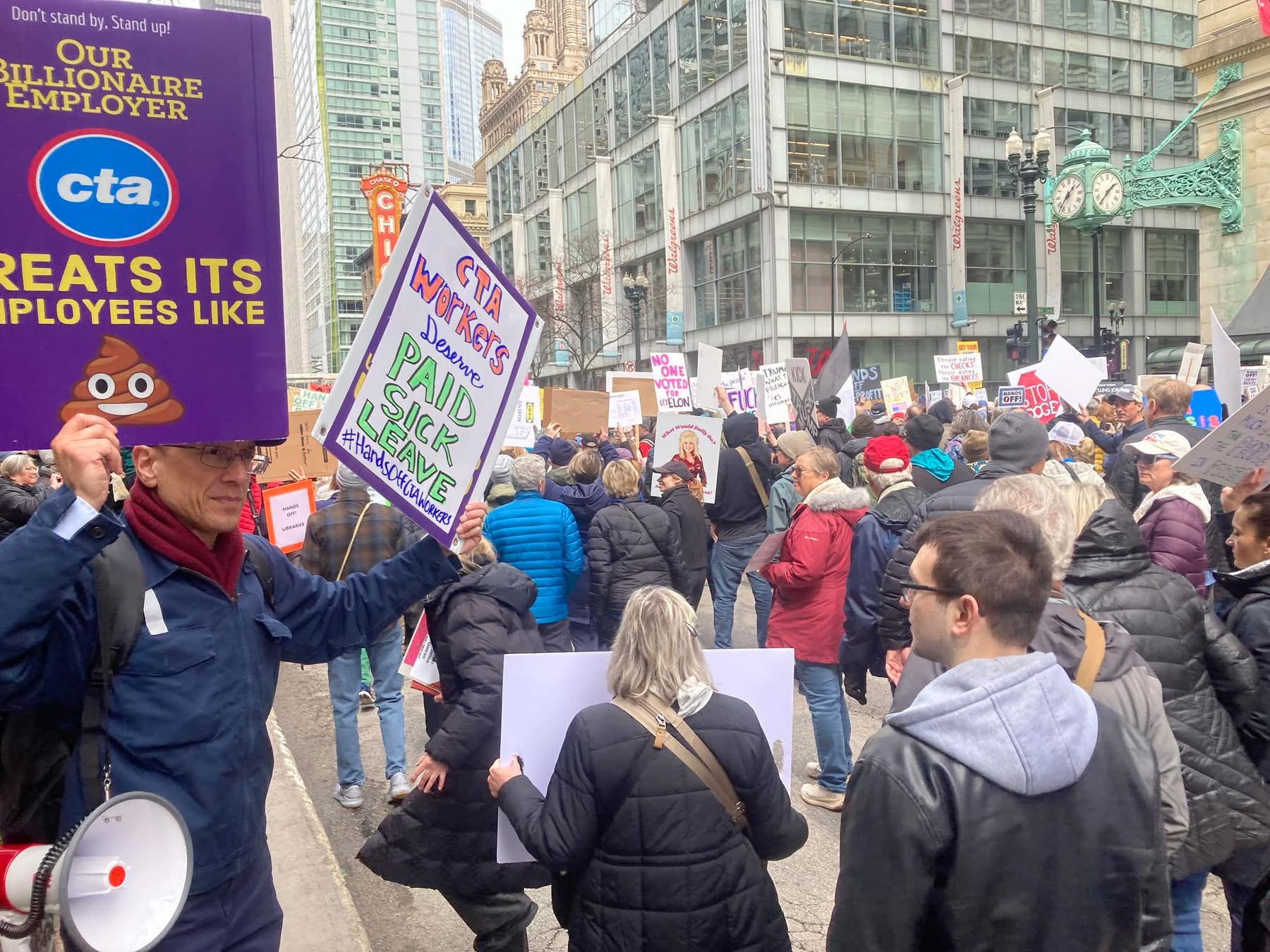
Eight years ago, a campaign promise yielded this protected bike lane on Philadelphia’s Spruce Street. Will the next mayor promise Vision Zero? Photo: Bicycle Coalition
This Friday, more than 200 movement leaders for safe transportation will gather in New York City for a symposium on Vision Zero — how New York and Sweden did it, and how their city can too. New York’s leadership on the issue has been inspiring: If you can make it (to zero) there, you’ll make it (to zero) anywhere.
And Wednesday, Advocacy Advance — a partnership of the League of American Bicyclists and the Alliance for Biking and Walking that helps local groups maximize their efforts — will announce $10,000 awards to groups trying to make Vision Zero a reality in their cities: the Bicycle Coalition of Greater Philadelphia and a partnership between Portland’s Bicycle Transportation Alliance and Oregon Walks.p>
Portland has already announced a Vision Zero goal and is now working to define its strategy, amid competing ideas from business interests and safety activists. Philadelphia, despite its progressive leadership, hasn’t yet embraced the idea and activists are still struggling to determine whether zero is even a sensible goal. After all, a commitment to zero deaths, unfortunately, most likely sets a city up for failure.
In February, Portland’s transportation director, Leah Treat, announced that Vision Zero would be part of the city’s next two-year action plan. The Bicycle Transportation Alliance and Oregon Walks want to make sure that one component of that commitment is the allocation of significant funding for safe streets.
Portland officials will vote next week on a proposed new street fee, the details of which are still being worked out. BTA and Oregon Walks hope the final $40 million package will be scaled for different income levels and that at least 45 percent of it will be dedicated to safety projects. The Portland Business Alliance is trying to reduce the fees for high earners and wants the entire sum to pay for maintenance.
BTA and Oregon Walks also want to make sure the city’s Vision Zero policy includes a strong focus on equity and inclusion in funding decisions and legislative support for speed cameras. The groups are working on a Vision Zero report identifying strategies and priority locations for safety improvements in the Portland area, based on crash data.
Philly is taking a different path. Not only is there no stated commitment from city leaders, there isn’t even a formal campaign yet. But Mayor Nutter leaves office in early 2016 and the Bicycle Coalition wants Vision Zero to be the signature issue of his successor.
The Coalition wants to use the campaign period to press candidates to support its platform, Better Mobility Philadelphia 2015, and to make safe streets a hot-button campaign issue. The platform includes a Vision Zero plank, though it doesn’t quite get to zero: It calls for a commitment from the mayor to reducing traffic deaths by 50 percent by 2020.
The Coalition is also pushing for $5 motor vehicle registration fee as a funding source for transportation infrastructure and for the new mayor to shore up the Streets Department’s sagging budget.
The current mayor is no slouch on safe streets issues. Just this week, Mayor Nutter created a Philadelphia Bicycle Advocacy Board, and he’s been honored by the bike movement for building 200 miles of bike lanes and using highway safety funds to improve pedestrian safety in the city. Nutter’s wife races bikes (she’s actually a member of that new advocacy board), but it wasn’t just a family connection that made the mayor a champion for street safety.
It helped that when he was a candidate, the Bicycle Coalition got him to commit to building buffered bike lanes between the Delaware and Schuylkill Rivers, which now grace Spruce and Pine Streets. And before that, in 1996, the Coalition had secured a commitment from then-mayoral candidate Ed Rendell to secure funding for the city’s first bike/pedestrian master plan, which he did. The Coalition clearly has a good track record when it takes advantage of the campaign period.
Whoever wins Philadelphia’s Democratic primary next May will almost certainly win the general election and serve two terms — meaning that getting an incoming mayor jazzed about street safety would pay eight years’ worth of dividends.
Sarah Clark Stuart of the Coalition says New York’s actions have sparked a lot of interest in Vision Zero in Philadelphia. “It has definitely penetrated the conversation about safety,” she said, “but it’s still a little bit undefined.” The Coalition is holding a listening session with supporters tonight to hear more about their goals for the campaign.
Portland and Philly aren’t the only cities taking action to reduce traffic violence. Chicago and San Francisco have also embraced a goal of zero deaths. At least 15 cities will be represented at Friday’s symposium in New York, all with a goal of achieving or strengthening a commitment to zero deaths in their communities. Some smaller towns and suburbs are working on it, too. Montgomery County, Maryland, recently launched a Vision Zero campaign. Soon, communities like these may have more successful examples to follow.




